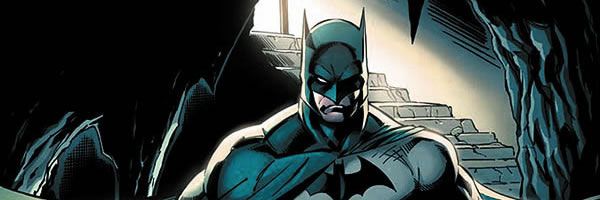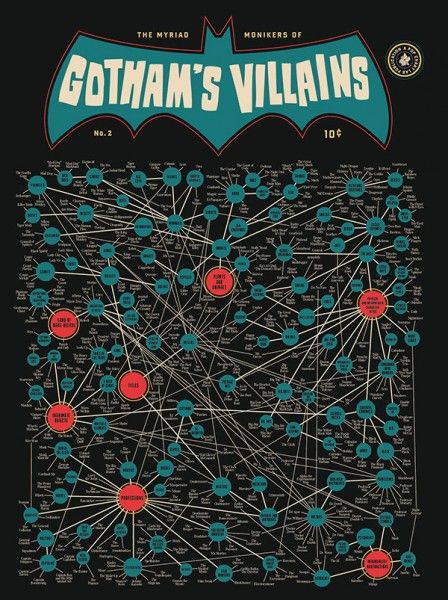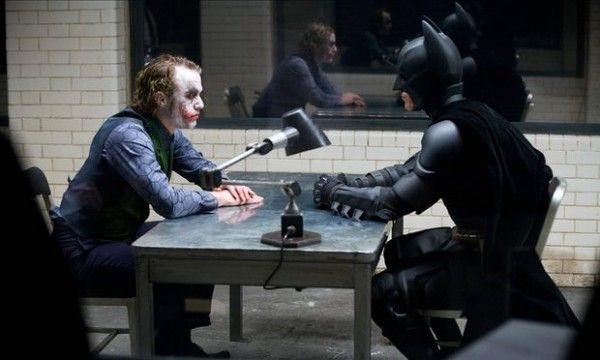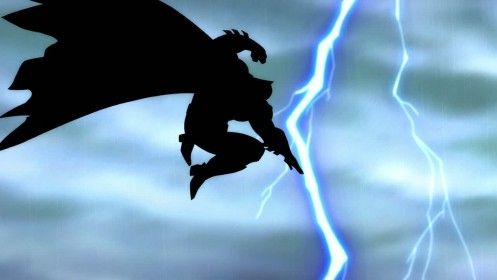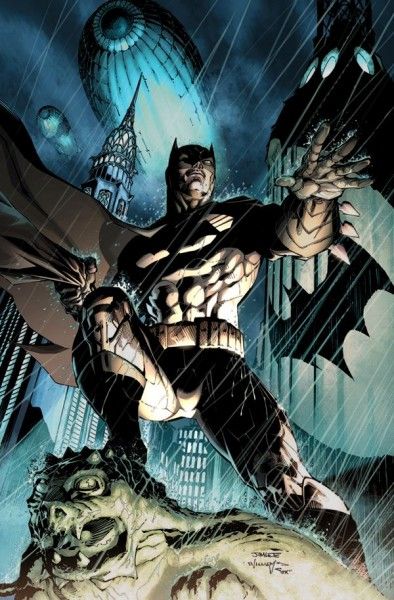Why do we like Batman? Is it because he’s a crimefighter? Is it because he’s smart and resourceful? Is it because he has gadgets? Is it because he doesn’t have superhuman powers? Is it his malleability so that over the last 75 years writers have been able to take him to the darkest depths of a broken psyche while others have made him lovably cartoonish? Why has the Caped Crusader captured our hearts and minds while countless other superheroes have fallen by the wayside?
I’ve been a Batman fan since I was five. I would watch reruns of the 1966 TV series, and loved when Batman and Robin would beat up a group of thugs with a series of “Bam!” “Pow!” and “Wham!” When I got a little older, I watched Batman: The Animated Series and rediscovered my adoration for the character all over again. This time, I appreciated the balance between the character’s darkness but it still carried a light touch to go with its noir attitude. I’ve followed the character’s elements in the comics from his must-read stories like The Long Halloween and The Dark Knight Returns to great stories that spun off from the central Batman plot like The Killing Joke and Gotham Central. Batman is a character I have followed and will continue to follow.
And yet I also believe Batman is the greatest Batman villain.
First, let us set aside that the character will exist in perpetuity because he’s incredibly valuable. As long as there is a comic book industry, there will likely be Batman comics. That means there will always be bad guys for Batman to fight, and he’s had more than his fair share as the chart below illustrates:
The needs of the business and the genre mean that Batman can never “beat” crime. If Gotham City were ever cleaned up, there would be no more books. It would also be unbelievable because no major metropolis is completely crime free.
Batman has made his little dent, but he’s also heralded the rise of other colorful criminals. In the Batman: The Animated Series episode “Trial”, the Gotham D.A. raises the question, “Did the criminals of Gotham create Batman or did he create them?” The show believes it’s the former (because the Batman show needs to be on his side), but I believe it’s the latter. It’s escalation, and it’s escalation that Bruce Wayne needs and desires.
The Dark Knight capitalized on this idea by showing that the Joker was the result of Batman, and that if Batman chooses to be a weapon against crime, then any arms race is going to have escalation. The Dark Knight Rises, for all of its faults, then showed the truth, which is that Bruce Wayne needed Batman for his own selfish purposes. Without Batman, he’s a hollow shell, haunting Wayne Manor (you could argue he never got over Rachel’s death, but would Rachel really want him to give up on the city as Bruce Wayne?), but as Batman he has a purpose, which is to save Gotham (a message that gets muddled because the movie doesn’t kill him off at the end).
Batman has a colorful rogues gallery but with perhaps the exception of The Joker, who serves as yin to Batman’s yang, they’re all the same. You can swap one baddie out with another, and while some writers have gone a little further in trying to link a villain’s story to say something about Batman, they’re ultimately just future inhabitants of Arkham Asylum. They stir up mischief, Batman stops them, they go into Arkham for a stint, they get released, rinse, and repeat.
Why doesn’t Batman stop the cycle? He’s not stupid and he’s not powerless out of his role as Batman. Bruce Wayne is arguably the most powerful man in Gotham. By day he runs a company that supplies plenty of jobs plus new technology and does philanthropic work, and by night he’s a crime-fighting crusader cleaning up the streets. And yet we’re left to believe that the thorn in Batman’s side is Arkham Asylum’s revolving door policy.
Some may believe that what this really does is raise the question of whether or not Batman should kill his enemies. But that’s like saying because prison breaks occur, we need to increase capital punishment. It’s using a draconian tool to literally overkill the problem. A far simpler solution would be to give Arkham stricter standards and make sure that the building isn’t so easy to escape. If Batman is truly brilliant, why can’t he design a better prison?
I believe it’s because he doesn’t want to. I believe Bruce Wayne has never recovered from the night his parents were murdered and Batman allows him to live out the fantasy of being able to save them. If Gotham City were truly cleaned up, the fantasy would die, and Batman doesn’t want that. So he leaves a lax system in place, the citizens of Gotham pay the price, and the spoiled rich kid gets the dress up and play superhero every night.
You can argue that this is over-reading the text, but I would say that part of what makes Batman a compelling character is that it makes me want to read this into his psyche. That there’s enough on the pages to suggest that maybe Batman isn’t the hero. Maybe he’s Gotham’s greatest villain, and his villainy, rather than the result of direct malice, comes from criminal negligence.
For even more Batman coverage here on Collider, peruse the links below.
- Batman Movies Ranked from Worst to Best
- Why ‘Batman: The Animated Series’ Is the Best Batman Adaptation
- Best Batman Cartoons Other Than ‘Batman: The Animated Series’

